Презентация price strategy

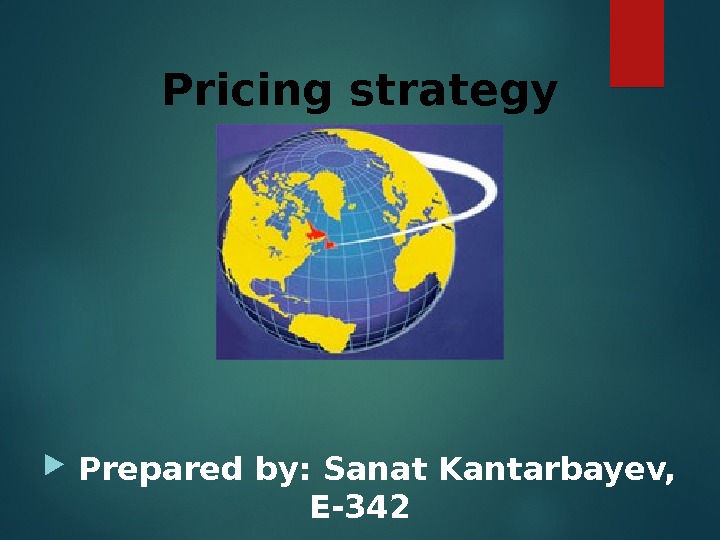
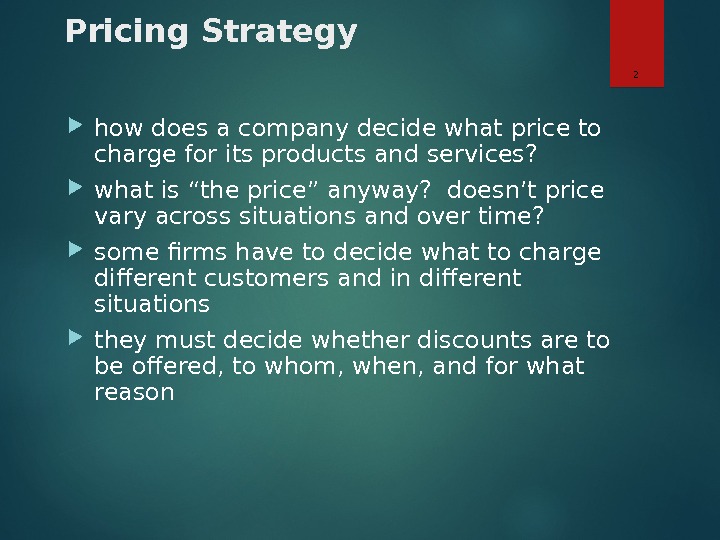
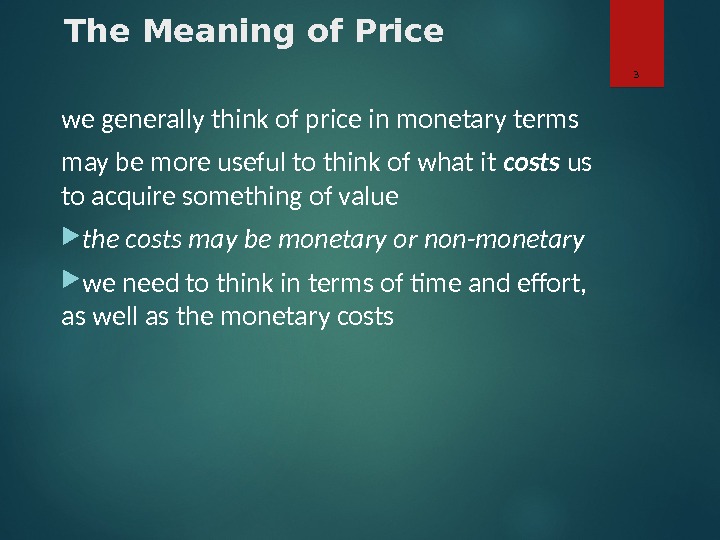

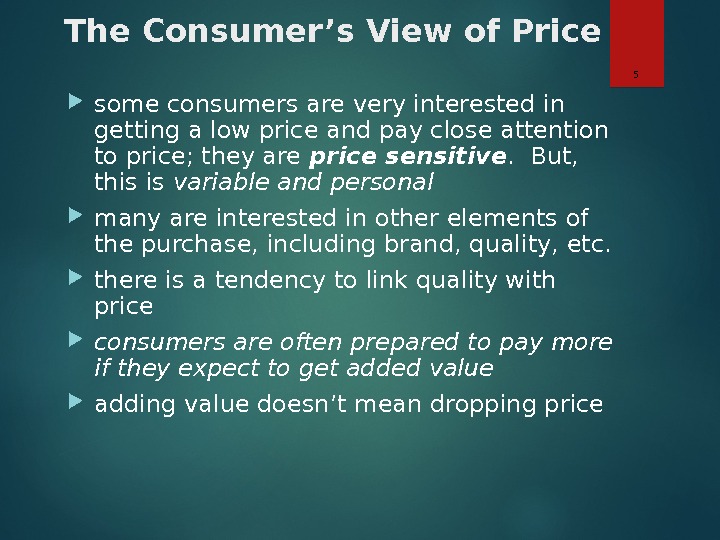
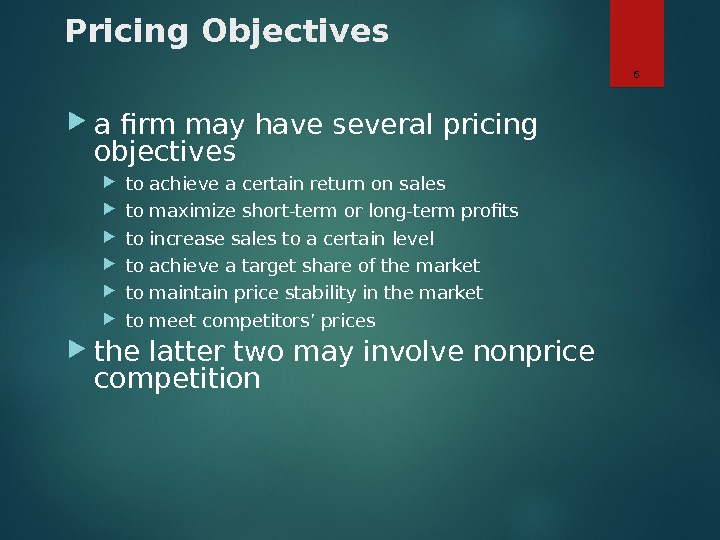
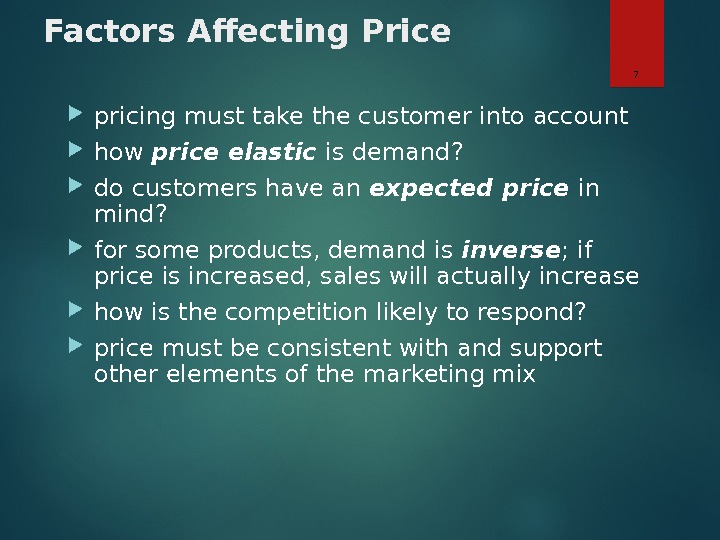
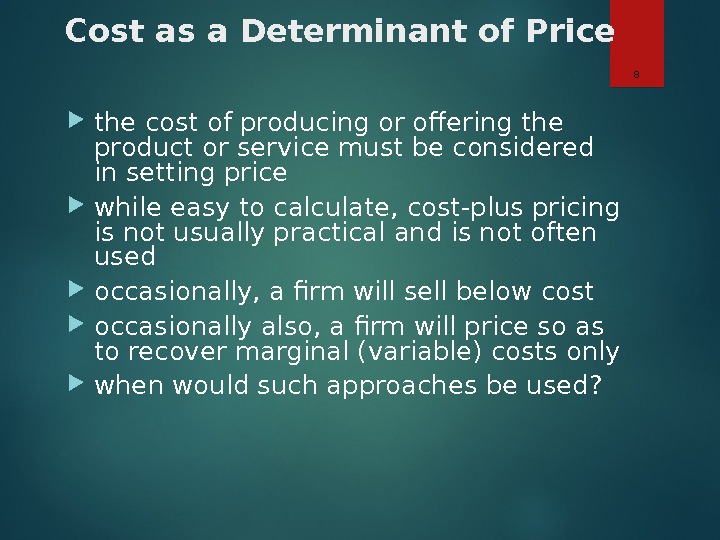
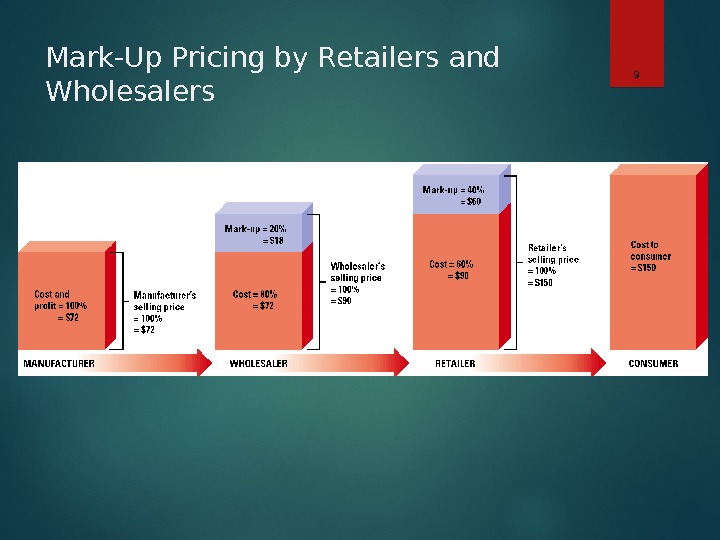
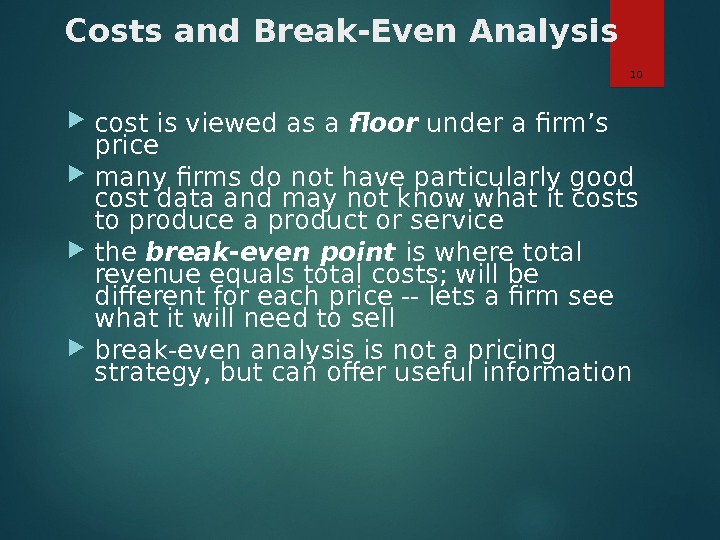
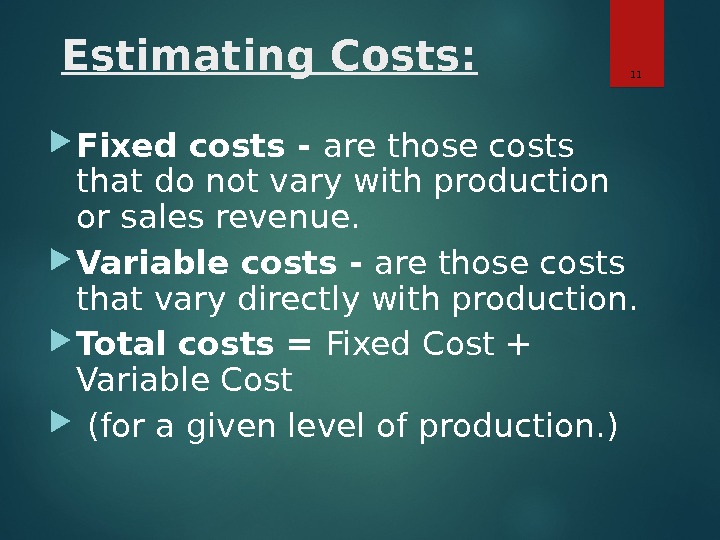
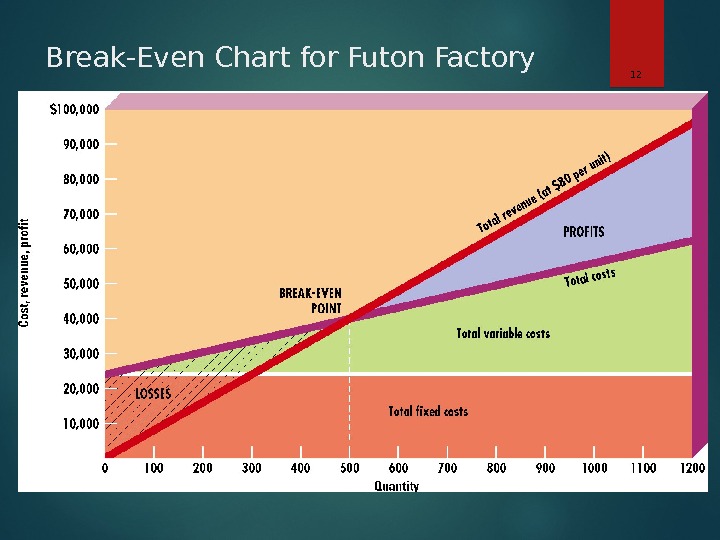
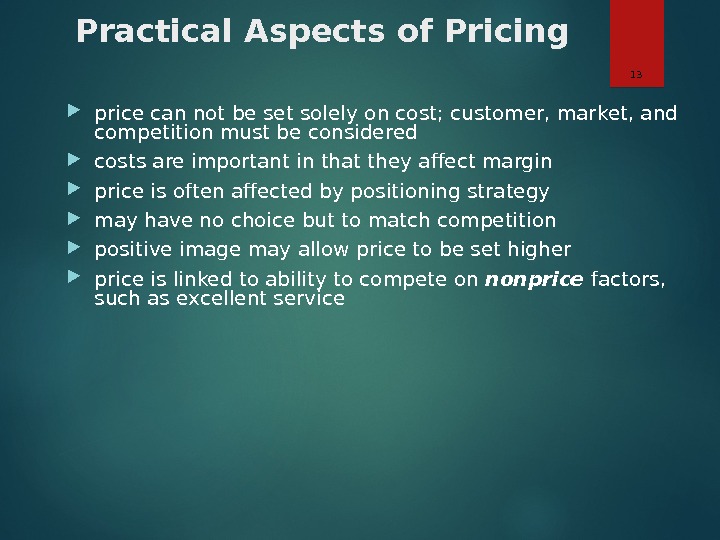
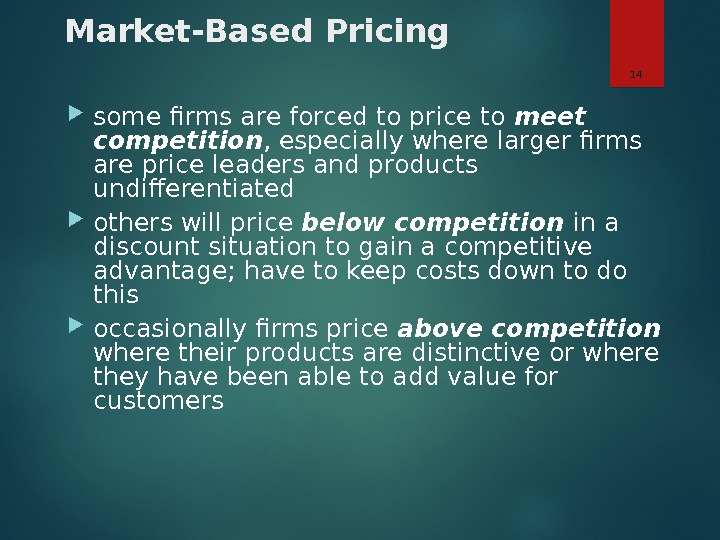
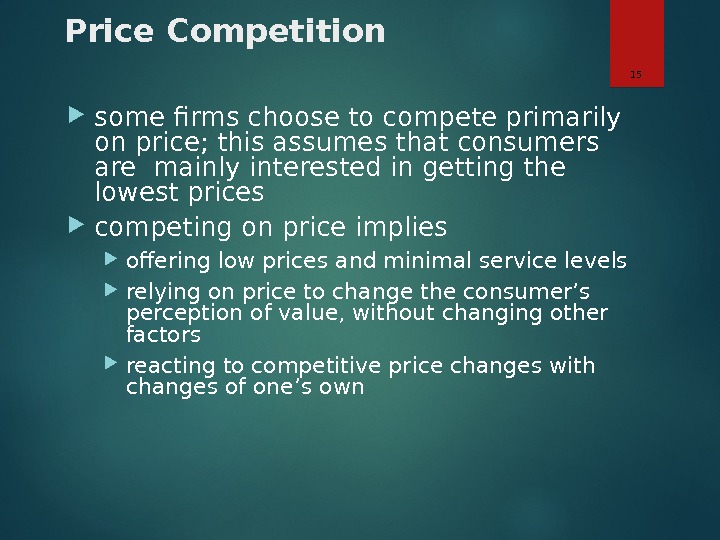
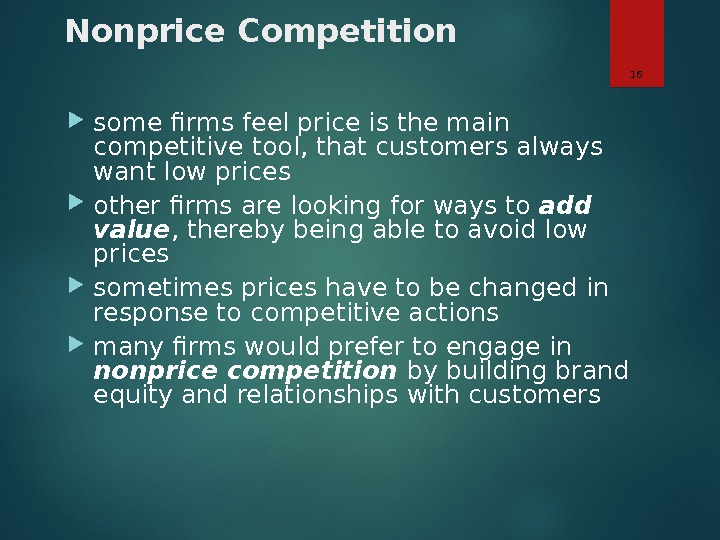
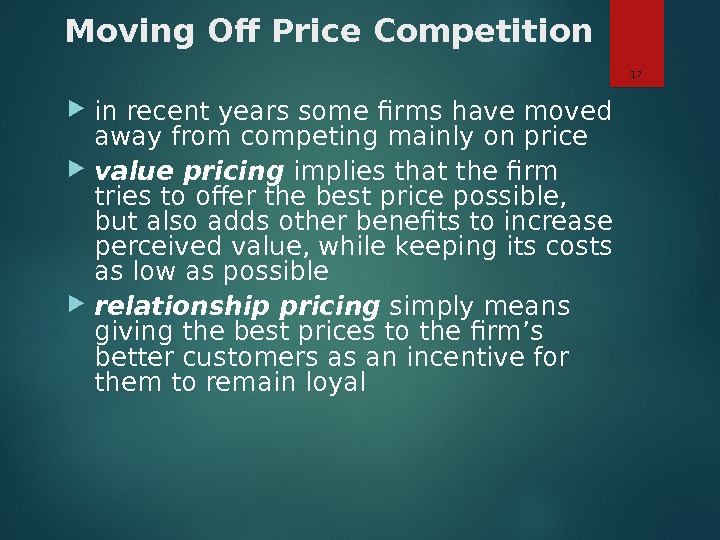
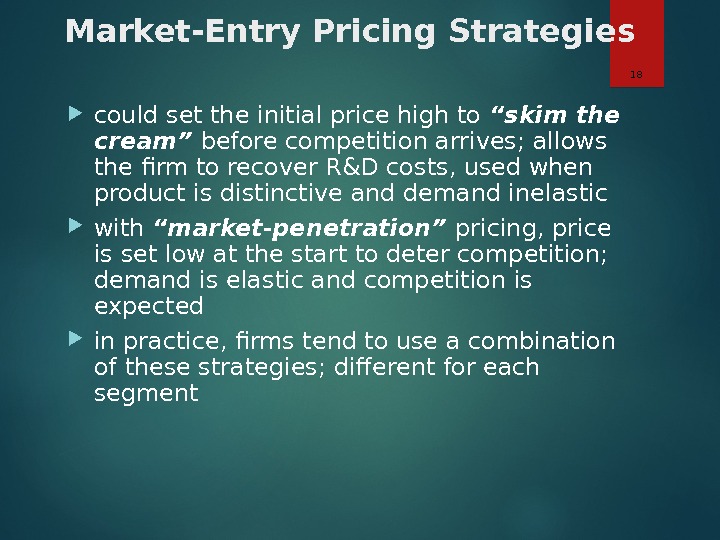
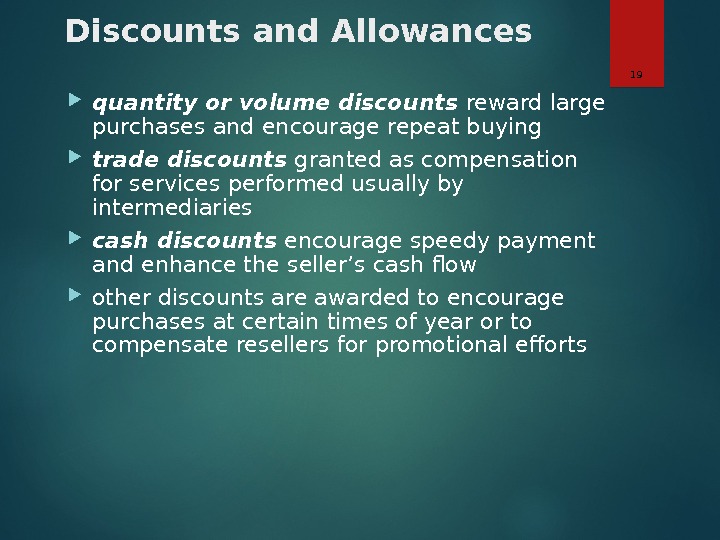
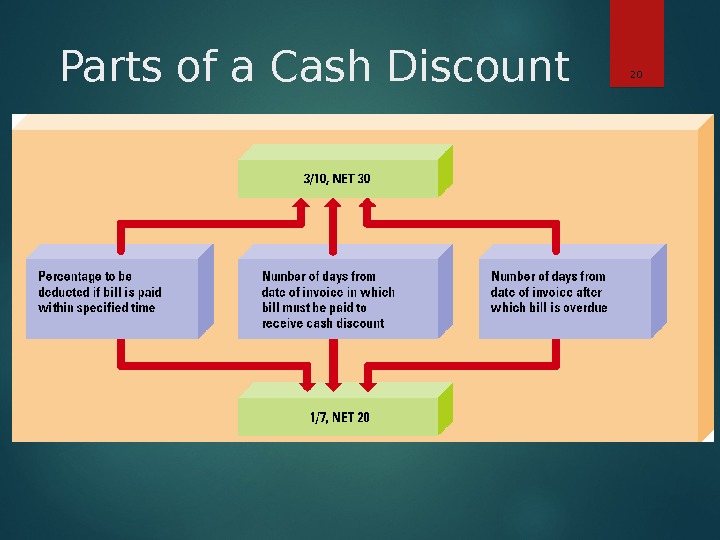
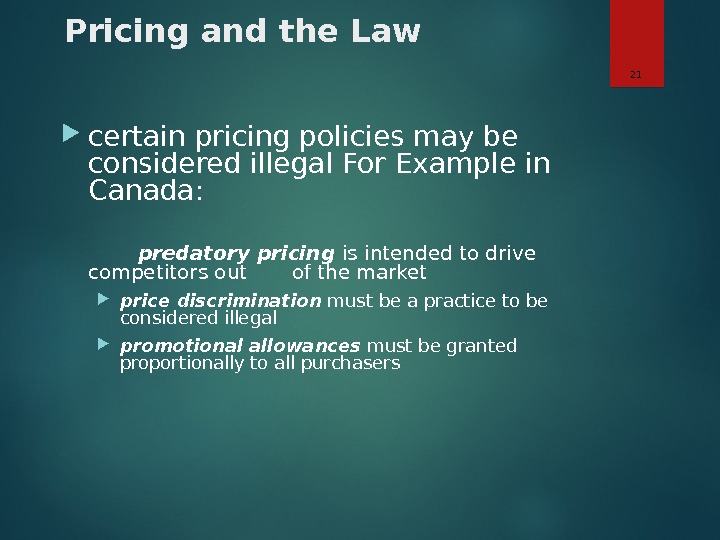
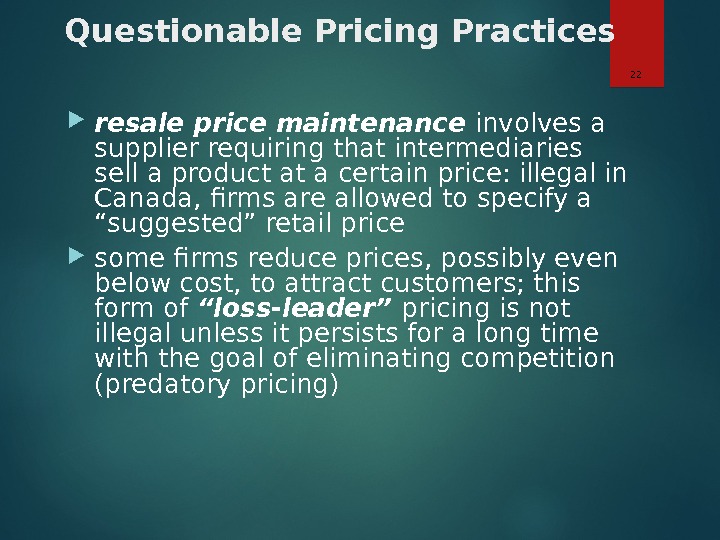

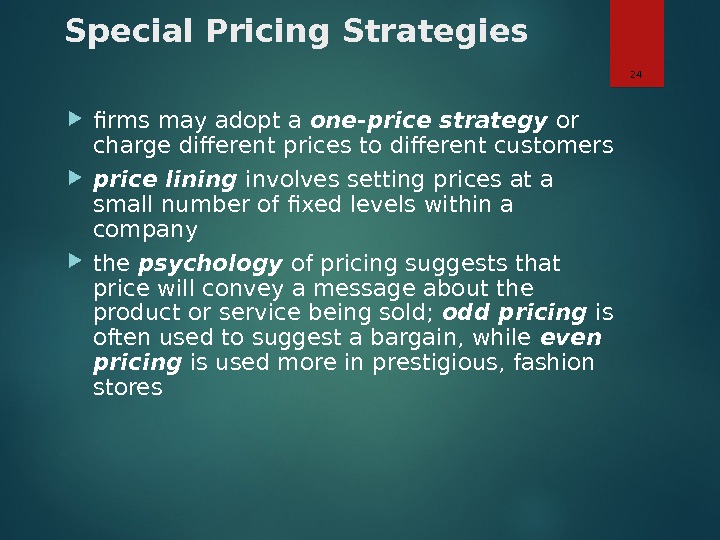

- Размер: 4.2 Mегабайта
- Количество слайдов: 25
Описание презентации Презентация price strategy по слайдам
 Prepared by: Sanat Kantarbayev, E-342 Pricing strategy
Prepared by: Sanat Kantarbayev, E-342 Pricing strategy
 Pricing Strategy how does a company decide what price to charge for its products and services? what is “the price” anyway? doesn’t price vary across situations and over time? some firms have to decide what to charge different customers and in different situations they must decide whether discounts are to be offered, to whom, when, and for what reason
Pricing Strategy how does a company decide what price to charge for its products and services? what is “the price” anyway? doesn’t price vary across situations and over time? some firms have to decide what to charge different customers and in different situations they must decide whether discounts are to be offered, to whom, when, and for what reason
 The Meaning of Price we generally think of price in monetary terms may be more useful to think of what it costs us to acquire something of value the costs may be monetary or non-monetary we need to think in terms of time and effort, as well as the monetary costs
The Meaning of Price we generally think of price in monetary terms may be more useful to think of what it costs us to acquire something of value the costs may be monetary or non-monetary we need to think in terms of time and effort, as well as the monetary costs
 The Customer Wants Value price is not always an important factor in influencing a sale; the customer wants more than a low price, may be willing to pay more the customer considers what he or she gets for the price paid; the seller must offer value price of a product or service communicates a message to the consumer about quality what causes them to conclude that they “paid too much” or “got a great deal”?
The Customer Wants Value price is not always an important factor in influencing a sale; the customer wants more than a low price, may be willing to pay more the customer considers what he or she gets for the price paid; the seller must offer value price of a product or service communicates a message to the consumer about quality what causes them to conclude that they “paid too much” or “got a great deal”?
 The Consumer’s View of Price some consumers are very interested in getting a low price and pay close attention to price; they are price sensitive. But, this is variable and personal many are interested in other elements of the purchase, including brand, quality, etc. there is a tendency to link quality with price consumers are often prepared to pay more if they expect to get added value adding value doesn’t mean dropping price
The Consumer’s View of Price some consumers are very interested in getting a low price and pay close attention to price; they are price sensitive. But, this is variable and personal many are interested in other elements of the purchase, including brand, quality, etc. there is a tendency to link quality with price consumers are often prepared to pay more if they expect to get added value adding value doesn’t mean dropping price
 Pricing Objectives a firm may have several pricing objectives to achieve a certain return on sales to maximize short-term or long-term profits to increase sales to a certain level to achieve a target share of the market to maintain price stability in the market to meet competitors’ prices the latter two may involve nonprice competition
Pricing Objectives a firm may have several pricing objectives to achieve a certain return on sales to maximize short-term or long-term profits to increase sales to a certain level to achieve a target share of the market to maintain price stability in the market to meet competitors’ prices the latter two may involve nonprice competition
 Factors Affecting Price pricing must take the customer into account how price elastic is demand? do customers have an expected price in mind? for some products, demand is inverse ; if price is increased, sales will actually increase how is the competition likely to respond? price must be consistent with and support other elements of the marketing mix
Factors Affecting Price pricing must take the customer into account how price elastic is demand? do customers have an expected price in mind? for some products, demand is inverse ; if price is increased, sales will actually increase how is the competition likely to respond? price must be consistent with and support other elements of the marketing mix
 Cost as a Determinant of Price the cost of producing or offering the product or service must be considered in setting price while easy to calculate, cost-plus pricing is not usually practical and is not often used occasionally, a firm will sell below cost occasionally also, a firm will price so as to recover marginal (variable) costs only when would such approaches be used?
Cost as a Determinant of Price the cost of producing or offering the product or service must be considered in setting price while easy to calculate, cost-plus pricing is not usually practical and is not often used occasionally, a firm will sell below cost occasionally also, a firm will price so as to recover marginal (variable) costs only when would such approaches be used?
 Mark-Up Pricing by Retailers and Wholesalers
Mark-Up Pricing by Retailers and Wholesalers
 Costs and Break-Even Analysis cost is viewed as a floor under a firm’s price many firms do not have particularly good cost data and may not know what it costs to produce a product or service the break-even point is where total revenue equals total costs; will be different for each price — lets a firm see what it will need to sell break-even analysis is not a pricing strategy, but can offer useful information
Costs and Break-Even Analysis cost is viewed as a floor under a firm’s price many firms do not have particularly good cost data and may not know what it costs to produce a product or service the break-even point is where total revenue equals total costs; will be different for each price — lets a firm see what it will need to sell break-even analysis is not a pricing strategy, but can offer useful information
 Estimating Costs: Fixed costs — are those costs that do not vary with production or sales revenue. Variable costs — are those costs that vary directly with production. Total costs = Fixed Cost + Variable Cost (for a given level of production. )
Estimating Costs: Fixed costs — are those costs that do not vary with production or sales revenue. Variable costs — are those costs that vary directly with production. Total costs = Fixed Cost + Variable Cost (for a given level of production. )
 Break-Even Chart for Futon Factory
Break-Even Chart for Futon Factory
 Practical Aspects of Pricing price can not be set solely on cost; customer, market, and competition must be considered costs are important in that they affect margin price is often affected by positioning strategy may have no choice but to match competition positive image may allow price to be set higher price is linked to ability to compete on nonprice factors, such as excellent service
Practical Aspects of Pricing price can not be set solely on cost; customer, market, and competition must be considered costs are important in that they affect margin price is often affected by positioning strategy may have no choice but to match competition positive image may allow price to be set higher price is linked to ability to compete on nonprice factors, such as excellent service
 Market-Based Pricing some firms are forced to price to meet competition , especially where larger firms are price leaders and products undifferentiated others will price below competition in a discount situation to gain a competitive advantage; have to keep costs down to do this occasionally firms price above competition where their products are distinctive or where they have been able to add value for customers
Market-Based Pricing some firms are forced to price to meet competition , especially where larger firms are price leaders and products undifferentiated others will price below competition in a discount situation to gain a competitive advantage; have to keep costs down to do this occasionally firms price above competition where their products are distinctive or where they have been able to add value for customers
 Price Competition some firms choose to compete primarily on price; this assumes that consumers are mainly interested in getting the lowest prices competing on price implies offering low prices and minimal service levels relying on price to change the consumer’s perception of value, without changing other factors reacting to competitive price changes with changes of one’s own
Price Competition some firms choose to compete primarily on price; this assumes that consumers are mainly interested in getting the lowest prices competing on price implies offering low prices and minimal service levels relying on price to change the consumer’s perception of value, without changing other factors reacting to competitive price changes with changes of one’s own
 Nonprice Competition some firms feel price is the main competitive tool, that customers always want low prices other firms are looking for ways to add value , thereby being able to avoid low prices sometimes prices have to be changed in response to competitive actions many firms would prefer to engage in nonprice competition by building brand equity and relationships with customers
Nonprice Competition some firms feel price is the main competitive tool, that customers always want low prices other firms are looking for ways to add value , thereby being able to avoid low prices sometimes prices have to be changed in response to competitive actions many firms would prefer to engage in nonprice competition by building brand equity and relationships with customers
 Moving Off Price Competition in recent years some firms have moved away from competing mainly on price value pricing implies that the firm tries to offer the best price possible, but also adds other benefits to increase perceived value, while keeping its costs as low as possible relationship pricing simply means giving the best prices to the firm’s better customers as an incentive for them to remain loyal
Moving Off Price Competition in recent years some firms have moved away from competing mainly on price value pricing implies that the firm tries to offer the best price possible, but also adds other benefits to increase perceived value, while keeping its costs as low as possible relationship pricing simply means giving the best prices to the firm’s better customers as an incentive for them to remain loyal
 Market-Entry Pricing Strategies could set the initial price high to “skim the cream” before competition arrives; allows the firm to recover R&D costs, used when product is distinctive and demand inelastic with “market-penetration” pricing, price is set low at the start to deter competition; demand is elastic and competition is expected in practice, firms tend to use a combination of these strategies; different for each segment
Market-Entry Pricing Strategies could set the initial price high to “skim the cream” before competition arrives; allows the firm to recover R&D costs, used when product is distinctive and demand inelastic with “market-penetration” pricing, price is set low at the start to deter competition; demand is elastic and competition is expected in practice, firms tend to use a combination of these strategies; different for each segment
 Discounts and Allowances quantity or volume discounts reward large purchases and encourage repeat buying trade discounts granted as compensation for services performed usually by intermediaries cash discounts encourage speedy payment and enhance the seller’s cash flow other discounts are awarded to encourage purchases at certain times of year or to compensate resellers for promotional efforts
Discounts and Allowances quantity or volume discounts reward large purchases and encourage repeat buying trade discounts granted as compensation for services performed usually by intermediaries cash discounts encourage speedy payment and enhance the seller’s cash flow other discounts are awarded to encourage purchases at certain times of year or to compensate resellers for promotional efforts
 Parts of a Cash Discount
Parts of a Cash Discount
 Pricing and the Law certain pricing policies may be considered illegal For Example in Canada : predatory pricing is intended to drive competitors out of the market price discrimination must be a practice to be considered illegal promotional allowances must be granted proportionally to all purchasers
Pricing and the Law certain pricing policies may be considered illegal For Example in Canada : predatory pricing is intended to drive competitors out of the market price discrimination must be a practice to be considered illegal promotional allowances must be granted proportionally to all purchasers
 Questionable Pricing Practices resale price maintenance involves a supplier requiring that intermediaries sell a product at a certain price: illegal in Canada, firms are allowed to specify a “suggested” retail price some firms reduce prices, possibly even below cost, to attract customers; this form of “loss-leader” pricing is not illegal unless it persists for a long time with the goal of eliminating competition (predatory pricing)
Questionable Pricing Practices resale price maintenance involves a supplier requiring that intermediaries sell a product at a certain price: illegal in Canada, firms are allowed to specify a “suggested” retail price some firms reduce prices, possibly even below cost, to attract customers; this form of “loss-leader” pricing is not illegal unless it persists for a long time with the goal of eliminating competition (predatory pricing)
 Geographic Pricing Strategies shipping costs will often require that different prices be charged in different regions if price is f. o. b. plant , buyer pays the freight uniform delivered pricing means that all buyers pay the same, regardless of location zone-delivered pricing sets different prices for different regions, depending on shipping costs under freight-absorption pricing, seller will pay some of the shipping costs for the buyer
Geographic Pricing Strategies shipping costs will often require that different prices be charged in different regions if price is f. o. b. plant , buyer pays the freight uniform delivered pricing means that all buyers pay the same, regardless of location zone-delivered pricing sets different prices for different regions, depending on shipping costs under freight-absorption pricing, seller will pay some of the shipping costs for the buyer
 Special Pricing Strategies firms may adopt a one-price strategy or charge different prices to different customers price lining involves setting prices at a small number of fixed levels within a company the psychology of pricing suggests that price will convey a message about the product or service being sold; odd pricing is often used to suggest a bargain, while even pricing is used more in prestigious, fashion stores
Special Pricing Strategies firms may adopt a one-price strategy or charge different prices to different customers price lining involves setting prices at a small number of fixed levels within a company the psychology of pricing suggests that price will convey a message about the product or service being sold; odd pricing is often used to suggest a bargain, while even pricing is used more in prestigious, fashion stores
 Thanks for your attention
Thanks for your attention

